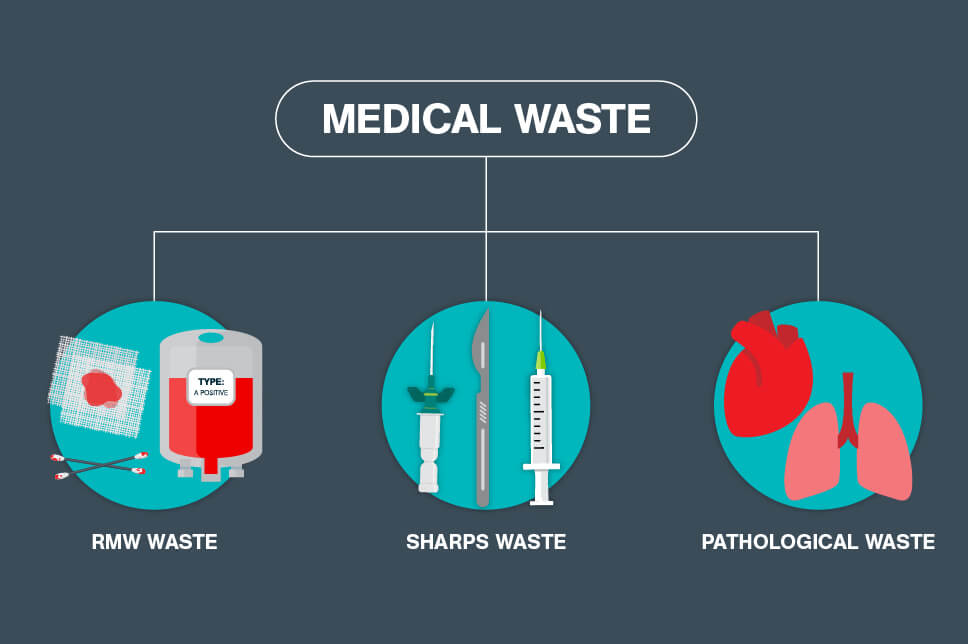Ensuring Safety and Cleanliness: Medical Waste Disposal and Hygienic Products

In our modern world, where health and cleanliness are paramount, the proper management of medical waste and the use of hygienic products play crucial roles in maintaining safety and preventing the spread of diseases. Whether it’s in medical facilities, laboratories, or even in our homes, responsible disposal of medical waste and the use of hygienic products are essential practices that protect both human health and the environment.
Medical Waste Disposal: A Critical Responsibility
Medical waste, also known as biohazardous waste or infectious waste, encompasses a wide range of materials that may pose a threat to human health or the environment if not handled properly. This includes used syringes, bandages, cultures, and even certain chemicals and pharmaceuticals. Improper disposal of medical waste can lead to the spread of infectious diseases, contamination of soil and water, and harm to wildlife and ecosystems.
Proper medical waste disposal involves several key steps:
- Segregation: Medical waste should be segregated at the point of generation to separate hazardous materials from non-hazardous ones. This helps ensure that each type of waste is handled and disposed of appropriately.
- Packaging: Once segregated, medical waste should be packaged in leak-proof, puncture-resistant containers that are clearly labeled with biohazard symbols. This helps prevent accidental exposure and ensures safe handling during transportation and disposal.
- Transportation: Medical waste must be transported by licensed and authorized carriers to approved treatment and disposal facilities. Special precautions should be taken to prevent spills or leaks during transit.
- Treatment: Depending on the type of waste, treatment methods such as autoclaving, incineration, or chemical disinfection may be used to render it safe for final disposal.
- Disposal: Treated medical waste is typically disposed of in accordance with local regulations, which may involve landfilling, deep burial, or other approved methods.
Hygienic Products: Promoting Cleanliness and Health
In addition to proper waste disposal, the use of hygienic products is essential for maintaining cleanliness and preventing the spread of germs and infectious diseases. Hygienic products encompass a wide range of items designed to promote personal hygiene and sanitation, including:
- Hand Sanitizers: Hand sanitizers containing alcohol or other disinfectants are effective at killing germs and bacteria when soap and water are not readily available. They are particularly useful in healthcare settings, public places, and during travel.
- Disinfectant Wipes: Disinfectant wipes are convenient for quickly cleaning and sanitizing surfaces, such as countertops, doorknobs, and electronic devices. They are commonly used in homes, offices, schools, and healthcare facilities.
- Personal Protective Equipment (PPE): PPE, including gloves, masks, gowns, and face shields, helps protect healthcare workers and other individuals from exposure to infectious agents. Proper use of PPE is critical in preventing the spread of diseases, especially during outbreaks or pandemics.
- Antibacterial Soaps: Antibacterial soaps contain ingredients that help kill bacteria and prevent the spread of infections. While regular soap and water are usually sufficient for handwashing, antibacterial soaps may be preferred in certain situations, such as healthcare settings or when dealing with highly contagious illnesses.
Conclusion: Prioritizing Health and Safety
In conclusion, the proper management of medical waste and the use of hygienic products are vital components of public health and safety efforts. By adhering to established protocols for medical waste disposal and incorporating hygienic practices into our daily routines, we can minimize the risk of disease transmission, protect the environment, and promote overall well-being for ourselves and future generations.
Whether you’re a healthcare professional, a facility manager, or simply a conscientious individual, remember that your actions matter in safeguarding health and maintaining cleanliness in our communities. By prioritizing responsible waste management and embracing hygienic practices, we can all contribute to a healthier, safer world for everyone.




